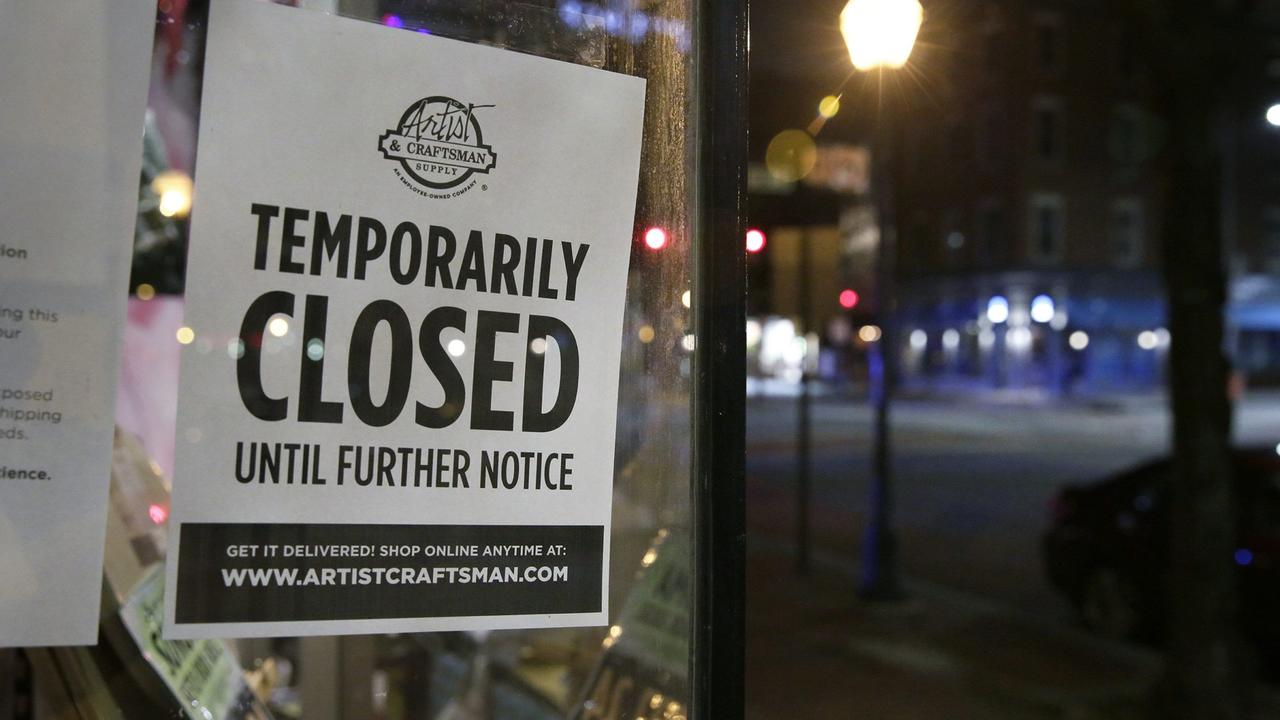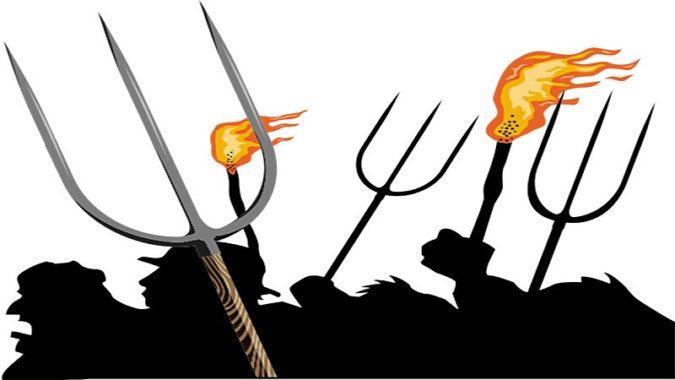Authored by J.D.Tuccille via Reason.com,
Could the stalled economy we've inflicted on ourselves in our frantic efforts to battle the COVID-19 pandemic lead to civil disorder? History suggests that's a real danger.
Around the world, high unemployment and stagnant economic activity tend to lead to social unrest, including demonstrations, strikes, and other forms of potentially violent disruptions. That's a huge concern as forecasters expect the U.S. unemployment rate in the months to come to surpass that seen during the depths of the Great Depression.
"We're putting this initial number at 30 percent; that's a 30 percent unemployment rate" in the second quarter of this year as a result of the planned economic shutdowns, Federal Reserve Bank of St. Louis President James Bullard told Bloomberg News on March 22. Gross Domestic Product, he adds, is expected to drop by 50 percent.
Unlike most bouts of economic malaise, this is a self-inflicted wound meant to counter a serious public health crisis. But, whatever the reasons, it means businesses shuttered and people without jobs and incomes. That's risky.
"Results from the empirical analysis indicate that economic growth and the unemployment rate are the two most important determinants of social unrest," notes the International Labour Organisation (ILO), a United Nations agency that maintains a Social Unrest Index in an attempt to predict civil disorder based, in part, on economic trends. "For example, a one standard deviation increase in unemployment raises social unrest by 0.39 standard deviations, while a one standard deviation increase in GDP growth reduces social unrest by 0.19 standard deviations."
Why would economic shutdowns lead to social unrest? Because, contrary to the airy dismissals of some members of the political class and many ivory-tower types, commerce isn't a grubby embarrassment to be tolerated and avoided—it's the life's blood of a society. Jobs and businesses keep people alive. They represent the activities that meet demand for food, clothing, shelter—and that develop and distribute the medicine and medical supplies we need to battle COVID-19.
President Donald Trump may be overly optimistic when he hopes to have the country, including areas hard-hit by the virus, "opened up and just raring to go by Easter," but he's not wrong to include the economy in his calculations.
By contrast, New York Gov. Andrew Cuomo's insistence that "if it's public health versus the economy, the only choice is public health," sounds fine and noble. But it reflects an unrealistic and semi-aristocratic disdain for the activities that make fighting the pandemic possible at all—and that keep social unrest at bay.
While the ILO has tried to quantify the causes of social unrest, its researchers certainly aren't the first to make the connection between angry, unemployed people and trouble in the streets.
At the height of the Great Depression, when U.S. unemployment hit a peak of 24.9 percent, Franklin Delano Roosevelt's administration saw make-work programs such as the Civilian Conservation Corps (CCC) as a means of getting the jobless—especially young men—safely into "quasi-military camps often far from home in the nation's publicly owned forests and parks," Joseph M. Speakman wrote for the Fall 2006 issue of Prologue Magazine, a publication of the U.S. National Archives and Records Administration.
"Bringing an army of the unemployed into 'healthful surroundings,' Roosevelt argued, would help to eliminate the threats to social stability that enforced idleness had created," Speakman added.
The program mostly worked—at least, it confined revolts to the camps themselves, where they were suppressed by Army officers. Those same officers commanded the men when they were drafted and dispatched to even more remote destinations with the coming of World War II.
In fact, the connection between unemployment, stagnant economies, and social unrest is so clear that an important indicator for a large underground economy is relative peace prevailing alongside a chronically high unemployment rate.
If 21 percent of the workforce "were jobless, Spain would not be as peaceful as, barring a few demonstrations, it has so far been, say economists and business leaders," the Financial Times noted in 2011. Sure enough, researchers found that off-the-books businesses and jobs thrived in Spain—accounting for the equivalent of a quarter of GDP at one point—keeping people employed and defusing tensions.
Bullard of the Fed doesn't propose shipping the jobless off to the wilderness—at least, not yet—and he doesn't seem inclined to rely on the black market to keep people fed, warm, and healthy. Instead, to defuse the impact of the social-distancing shutdowns of normal economic activity, he calls for lost income to be replaced by unemployment insurance and other payments that would make displaced workers and business owners whole.
He better be right that government checks—drawing on money from the thin air and not generated by an economy that has largely halted, I'll note—can offset the pain of lost jobs and businesses, because the first wave of the unemployment he predicts is already here.
"In the week ending March 21, the advance figure for seasonally adjusted initial claims was 3,283,000, an increase of 3,001,000 from the previous week's revised level," the United States Department of Labor announced on Thursday, March 26.
"This marks the highest level of seasonally adjusted initial claims in the history of the seasonally adjusted series."
Those disturbed by such economic collapse include public health professionals who take COVID-19 very seriously.
"I am deeply concerned that the social, economic and public health consequences of this near total meltdown of normal life—schools and businesses closed, gatherings banned—will be long lasting and calamitous, possibly graver than the direct toll of the virus itself," wrote David L. Katz, former director of Yale University's Yale-Griffin Prevention Research Center, in The New York Times last week.
"The stock market will bounce back in time, but many businesses never will. The unemployment, impoverishment and despair likely to result will be public health scourges of the first order."
Unemployment, impoverishment, and despair are frightening outcomes in themselves. They're also a recipe for social unrest that will afflict even those of us who weather both the pandemic and the accompanying economic storm.

